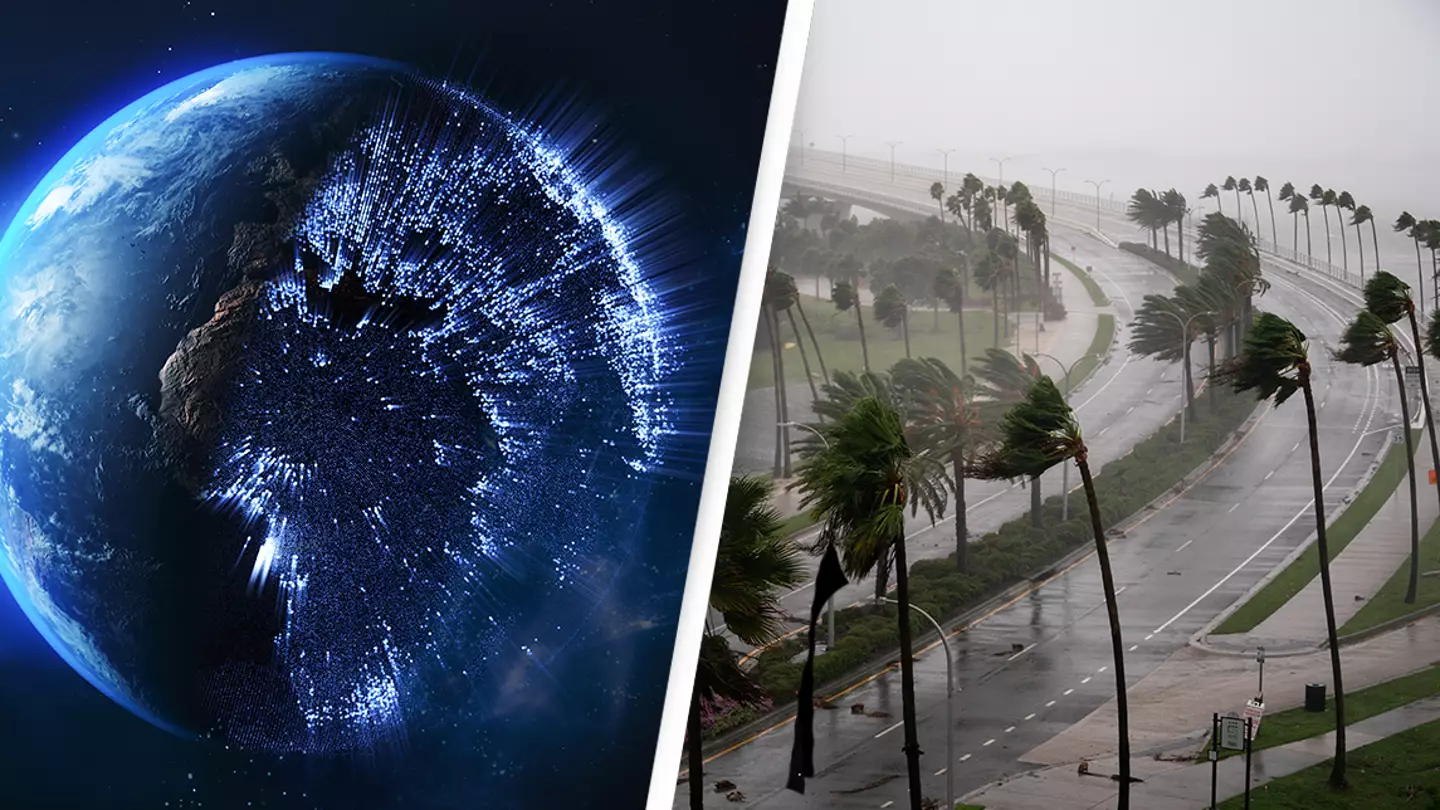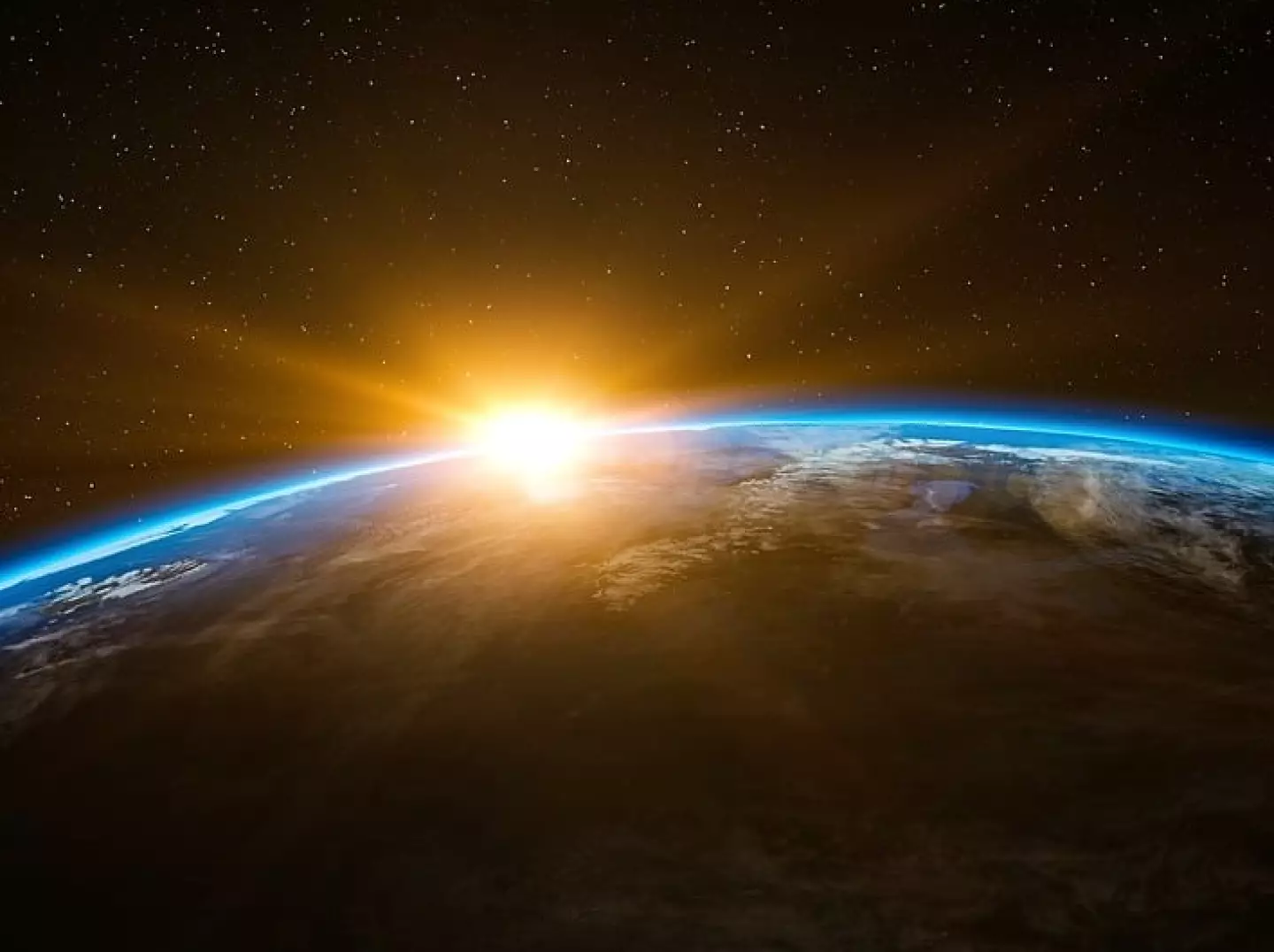
With the Earth recording speeds faster than ever in recent years, have you ever thought about what would happen if the rotation of our planet continues to pick up the pace?
Admittedly, it's probably not at the top of the list of things you have to be thinking about on a day-to-day basis.
In fact, you might not have thought much at all about the Earth spinning since you first learned about it in elementary school, but an unusual occurrence last year reminded us why maybe we should.
Advert
On 29 June, 2022, Earth completed one full spin in 1.59 milliseconds less than its usual 24-hour rotation, setting the record for the shortest day and marking another in a series of speed records that scientists have noted since 2020.
For reference, the Earth typically spins at about 1,037 mph at the equator.
Obviously an increase in speed isn't something we notice as we go about our daily lives, but if it becomes a trend in the future it would be much more difficult to ignore.
Witold Fraczek, an analyst at ESRI, a company that makes geographic information system (GIS) software, told Popsci last year that it might 'take a few years' to notice the changes of a faster spin, but there definitely would be some tell-tale signs.
Even just one mile an hour could cause water to migrate from the poles, and raise levels around the equator by a few inches. At 100 mph faster, the equator would become completely covered in water.

“I think the Amazon Basin, Northern Australia, and not to mention the islands in the equatorial region, they would all go underwater,” Fraczek said. “How deep underwater, I’m not sure, but I’d estimate about 30 to 65 feet.”
Another impact of an increasingly fast Earth would be that the satellites we've sent off into space would become off-track.
Satellites set to geosynchronous orbit are designed to match the speed of Earth as they fly around to allow them to stay positioned over the same spot - but if the Earth sped up, the satellites would get left behind.
As a result, satellite communications, television broadcasting, and military and intelligence operations could all be interrupted - and we know how much we love our TV down here on Earth.
Though some satellites are able to adjust their positions and speeds accordingly, others might need to be replaced altogether.
“These could disturb the life and comfort of some people,” Fraczek said, though he added that such an impact 'should not be catastrophic to anybody'.
Unless they were to cut out the broadcast of your favourite reality TV series right at the most intense moment, of course.

One thing some people might consider a benefit of a faster Earth is that you would actually weigh less than you do at its normal speed due to the extra centrifugal force generated as the equator spins faster.
NASA astronomer Sten Odenwald has actually calculated that if the equator made it up to speeds of 17,641 mph, the centrifugal force would be great enough that you would be essentially weightless. Though, you might also be dead, which would be unfortunate.
A great increase in speed would also cause us all to become jetlagged due to shorter days, but even a slow increase would be enough to impact the Earth's atmosphere and crust, meaning hurricanes would spin faster, and there would be 'enormous earthquakes'.
Finally, if the Earth were to get up to about 17,000 miles per hour, rain might actually start moving in reverse, travelling up into the atmosphere rather than falling to the ground.
Again, though, there probably wouldn’t be many humans left in the equatorial region to see it happening.
Though Earth has recorded faster speeds in recent years, in general it has been slowing down by about 3.8 mph every 10 million years since the formation of the moon, due to the moon's gravitational pull.
Still, if we did happen to be hit by some space object and sent spinning faster than ever. And if that happened, we'd probably be dead anyway as it 'would liquify the crust'. A cheery thought for a Friday afternoon.
Topics: Science, World News, Environment